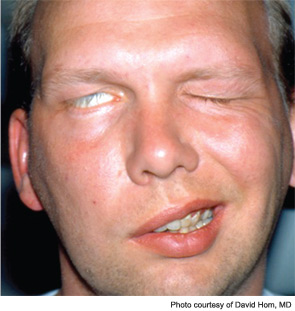The Society for Middle Ear Disease aims to promote public and professional awareness of the importance of otitis media as a major health problem.

Advances in Facial Paralysis
Literature Review: A Roundup of Important Recent Studies
TORS alone effective for select cases of oropharyngeal cancer; swallowing exercises during cancer treatment and muscle maintenance; better analytic tools needed for pediatric OSA; individualized education improves language skills in UHL; vitamin a not an effective treatment for olfactory disorders; ECD as alternative surgery for benign parotid tumors.
Where the Presidential Candidates Stand on Key Health Care Issues
President Barack Obama’s and former Governor Mitt Romney’s positions on issues affecting the medical profession.

Key Provisions that Can Make or Break Extended Warranties for Medical Equipment
The art of purchasing a piece of medical equipment requires the perfect combination of medical, financial, business and legal expertise.
Effectively Accommodate Employee Time Off in Your Medical Practice
The question of how much time off to provide, as well as how to ensure staff does not abuse the policy, can leave practice managers confused. Here, we help you navigate the waters of paid time off.

Expert Tips to Make Sure Your Next Hire is a Keeper
When there are more physicians and administrative staff coming and going in your medical practice than patients, there’s likely a problem with the hiring process.
Mobile Devices in the Medical Setting Can Lead to Distracted Doctors and Medical Error
Physicians are increasingly incorporating lightweight computers, mobile phones and tablets into the delivery of health care, which comes with the potential for distraction.
Risks and Benefits of CT Scans in Children
A new study again raises the issue of cancer risk with CT scan usage.

Does Addition of Antiviral Medication to High-Dose Corticosteroid Therapy Improve Hearing Recovery Following ISSNHL?
Evidence regarding the addition of antiherpetic medications to high-dose steroid therapy in the treatment of idiopathic sudden sensorineural hearing loss.
- « Previous Page
- 1
- …
- 259
- 260
- 261
- 262
- 263
- …
- 342
- Next Page »